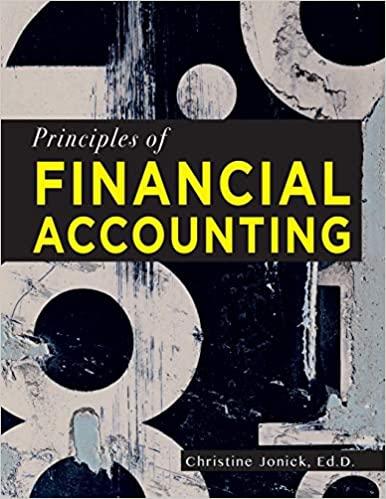Question
P6-31 Longtop Financial Technologies Limited, Deloitte Touche Tohmatsu CPA Ltd (LO1, 3) In May 2011, Deloitte Touche Tohmatsu (DTT) resigned as the auditor for Longtop
P6-31 Longtop Financial Technologies Limited, Deloitte Touche Tohmatsu CPA Ltd (LO1, 3)
In May 2011, Deloitte Touche Tohmatsu (DTT) resigned as the auditor for Longtop Financial Technologies Limited (Longtop). We provide excerpts from DTTs resignation letter here:
As part of the process for auditing the Companys financial statements for the year ended 31 March 2011, we determined that, in regard to bank confirmations, it was appropriate to perform follow up visits to certain banks. These audit steps were recently performed and identified a number of very serious defects, including statements by bank staff that their bank had no record of certain transactions; confirmation replies previously received were said to be false; significant differences in deposit balances reported by the bank staff compared with the amounts identified in previously received confirmations (and in the books and records of the Group); and significant bank borrowings reported by bank staff not identified in previously received confirmations (and not recorded in the books and records of the Group).
In the light of this, a formal second round of bank confirmation was initiated on 17 May. Within hours, however, as a result of intervention by the Companys officials including the chief operating officer, the confirmation process was stopped amid serious and troubling new developments including: calls to banks by the Company asserting that Deloitte was not their auditor; seizure by the Companys staff of second round bank confirmation documentation on bank premises; threats to stop our staff leaving the Company premises unless they allowed the Company to retain our audit files then on the premises; and then seizure by the Company of certain of our working papers.
Then on 20 May the Chairman of the Company, Mr. Jia Xiao Gong called our Eastern Region Managing Partner, Mr. Paul Sin, and informed him in the course of their conversation that there were fake revenue in the past so there were fake cash recorded on the books. Mr. Jia did not answer when questioned as to the extent and duration of the discrepancies. When asked who was involved, Mr. Jia answered: senior management.
Exhibit 6.8 - Cost of Audit Procedures and Evidence Quality
| Type of Substantive Procedure | Cost of Procedure | Evidence Quality |
|---|---|---|
| Inspection of documents (includes vouching and tracing) | Low to medium (depends on sample size) | Medium to high (assuming the documents are valid and unaltered, needs to consider source) |
| Inspection of physical assets | Low to high (depends on complexity, location of process, and expertise required) | High (existence); low to medium (valuation, ownership) |
| Observation | Low to high (depends on complexity, location of process, and expertise required) | Medium (because people may change behavior while being observed) |
| External Confirmations | Low to medium (can be performed manually or electronically; depends on sample size) | Medium to high (assuming that there is no fraud in the confirmation process) |
| Recalculation | Low to medium (can be performed manually or electronically; depends on sample size) | Medium to high |
| Reperformance | Low to high (depends on sample size and complexity of process) | Medium to high |
| Analytical procedures | Low to medium (depends on the type of analytical procedure) | Medium to high (if the auditor who is conducting the test is competent and the data are reliable) |
| Scanning | Low to medium (can be performed manually or electronically; depends on the length of document) | Low to medium (will need to follow on significant or unusual items using other procedures) |
| Inquiry of knowledgeable persons | Low | Low (will also need corroborating evidence) |
Questions
1. What audit evidence-related problems did DTT encounter during the audit of Longtop?
2. Exhibit 6.8 describes external confirmations as generally being a reliable, high quality type of evidence. When would that generality not be accurate? What assumptions should the auditor address concerning confirmations before concluding that using confirmations will result in reliable audit evidence?
3. Explain the role of professional skepticism in the context of evaluating evidence obtained from confirmations.
Step by Step Solution
There are 3 Steps involved in it
Step: 1

Get Instant Access to Expert-Tailored Solutions
See step-by-step solutions with expert insights and AI powered tools for academic success
Step: 2

Step: 3

Ace Your Homework with AI
Get the answers you need in no time with our AI-driven, step-by-step assistance
Get Started


